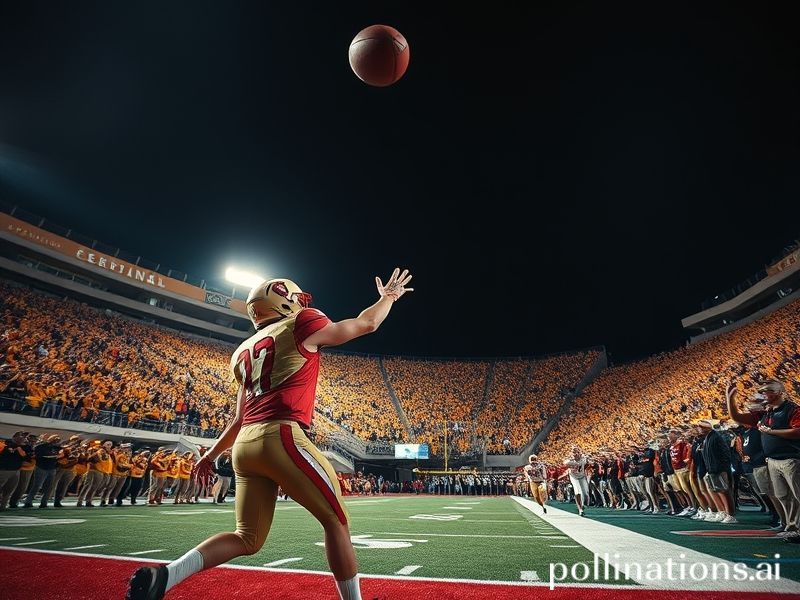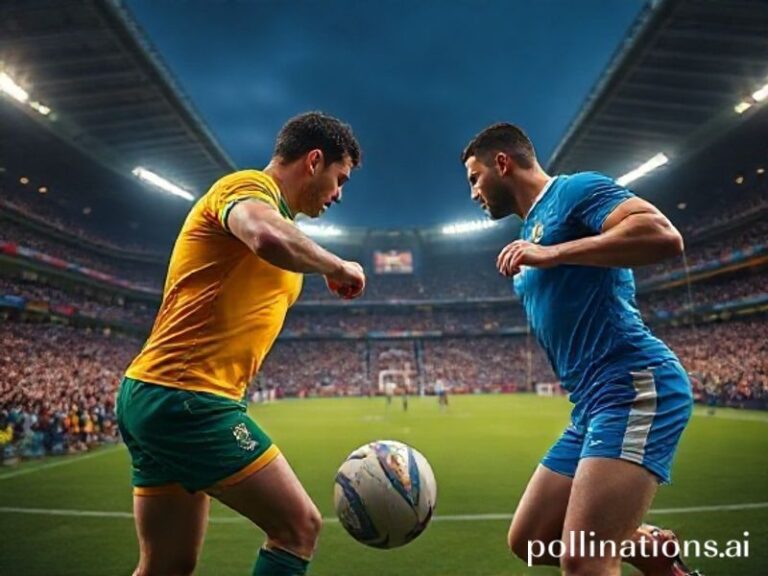Louisville vs Pittsburgh: A Rust-Belt Proxy War for the Soul of Semi-Recovered America
Louisville vs Pittsburgh: When Two Rust-Belt Cinderellas Try to Waltz on the Same Cracked Ballroom Floor
By Matteo “Still Jet-Lagged” Ricci, Senior Correspondent, Dave’s Locker
Somewhere above the Ohio River, a passenger jet banks left and the in-flight map helpfully labels two glowing dots: Louisville, Kentucky and Pittsburgh, Pennsylvania. To the average European sipping €9 tomato juice at 35,000 feet, these are interchangeable fly-over nodes, notable mainly for their shared ability to produce bourbon and/or existential dread in equal measure. Yet down on the ground—where the bourbon is cheaper and the dread comes with free refills—this weekend’s Louisville vs Pittsburgh showdown is being marketed as a clash of civilizations, or at least of slightly different interpretations of post-industrial malaise.
Global audiences, still hungover from the last round of “El Clásico” or the latest North Korean missile cosplay, may struggle to see why anyone outside the 502 or 412 area codes should care. But remember: empires have risen and fallen on less. The Roman Empire unraveled over bread, circuses, and questionable zoning; we, in our advanced stage of late capitalism, have simply replaced bread with toasted ravioli and circuses with college football played in stadiums named after regional banks that no longer exist.
Louisville arrives draped in the faint perfume of Kentucky Derby glamour—an annual two-minute orgy of mint juleps, fascinators, and horses that cost more than the GDP of Vanuatu. Pittsburgh, meanwhile, counters with the steely self-regard of a city that once produced the world’s steel, now replaced by world-class medical centers treating the lung conditions produced by said steel. One city gentrified its riverfront into art installations; the other turned its smokestacks into wedding-venue chic. Both insist they are “the Brooklyn of the Midwest,” which is geopolitically impossible but emotionally accurate.
From a macro-lens, the rivalry is a tidy parable of globalization’s after-party. Louisville’s economy hums on UPS hub logistics—packages race in and out like tourists who’ve mistaken bourbon for iced tea. Pittsburgh’s miracle cure is eds & meds: universities exporting PhDs and hospitals importing sick Canadians who can’t wait six months for an MRI. Together, they form a bipolar heartbeat of American semi-recovery, pumping venture capital and artisanal pierogi through Appalachian arteries. If Davos ever needed a case study in “How to Monetize Your Decline,” these two cities would be the PowerPoint slides.
International investors—those hedge-fund locusts currently strip-mining European football—have begun circling. Qatari sovereign wealth sniffed around Churchill Downs; Korean biotech giants dangled seed money in Oakland (the neighborhood, not the coast). The subtext is obvious: if you can’t buy the whole U.S., you might as well buy the parts still dimly lit enough to look romantic on Instagram. Louisville vs Pittsburgh is thus a proxy war for brandable authenticity, fought with craft breweries instead of tanks.
On the human level, the matchup evokes a familiar diaspora drama. Picture Ahmed in Dubai streaming the game at 4 a.m. because his cousin married a Louisville alum; or Mei-Ling in Shenzhen learning to pronounce “Yinzers” via TikTok duets. Globalization promised us a borderless utopia; what we got was everyone everywhere yelling the same regional slur at the same pixelated referee. Progress, sort of.
And yet the stakes remain poignantly small. Neither city is likely to secede, get nuked, or discover oil beneath its minor-league baseball diamond. The winner will receive a trophy heavy enough to herniate an intern, a week of slightly smug headlines, and the fleeting illusion that history still grants points for style. The loser will console itself with the fact that, in the long run, the sun expands and swallows the Earth anyway, rendering all human rivalries moot. Midwestern fatalism: the ultimate equalizer.
By the fourth quarter, as bourbon-breathed tailgaters harmonize with Terrible Towel–waving octogenarians, the international viewer may experience a rare moment of clarity: the planet is burning, supply chains are collapsing, crypto empires vaporize overnight—but somewhere, two rust-belt cities are arguing over a football score like teenagers fighting over the aux cord. There is comfort in the pettiness; it suggests the apocalypse will at least have halftime snacks.
Kickoff approaches. May the best post-industrial Cinderella fit the glass slipper—before the slipper is repossessed by Chinese venture capital.







